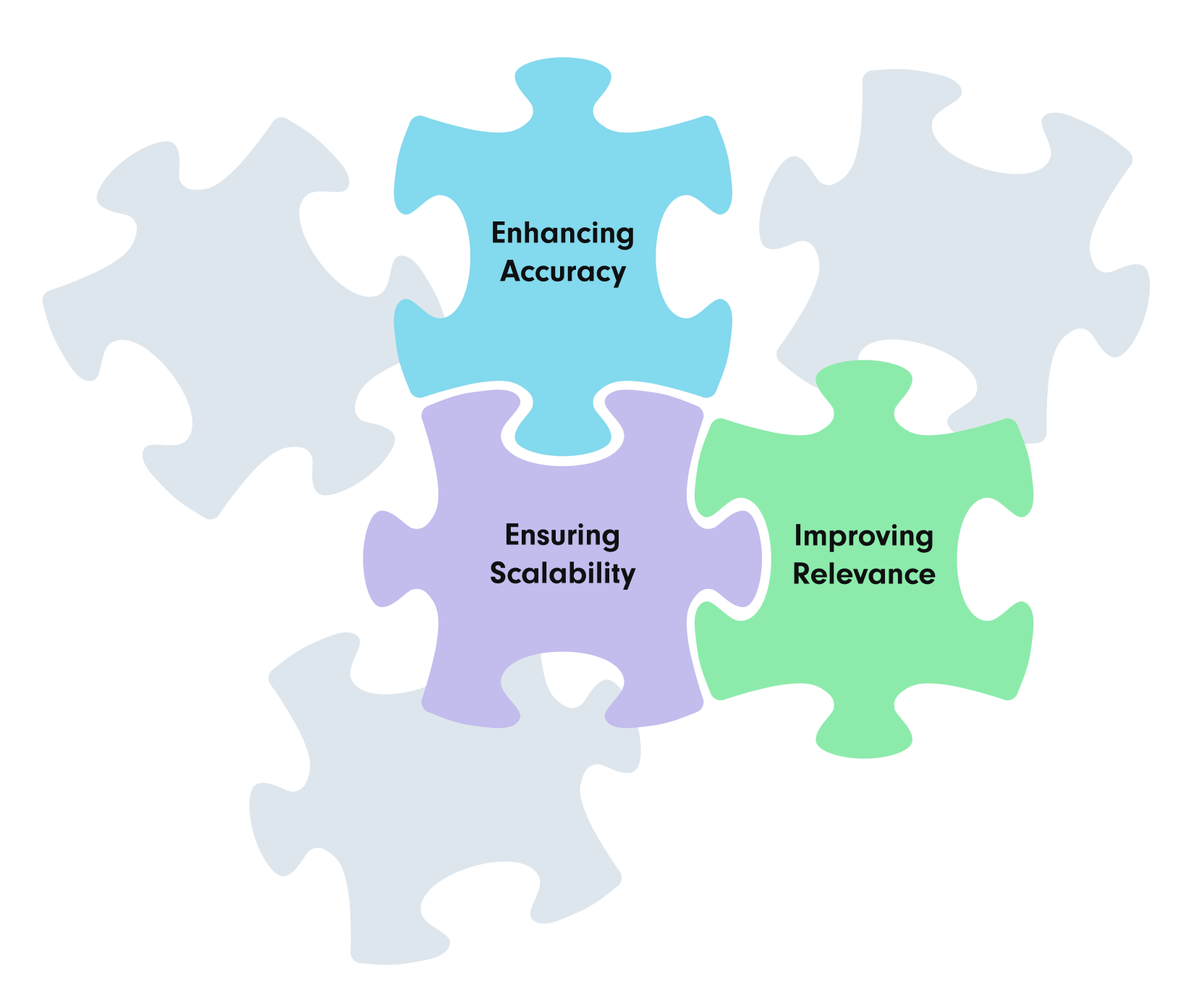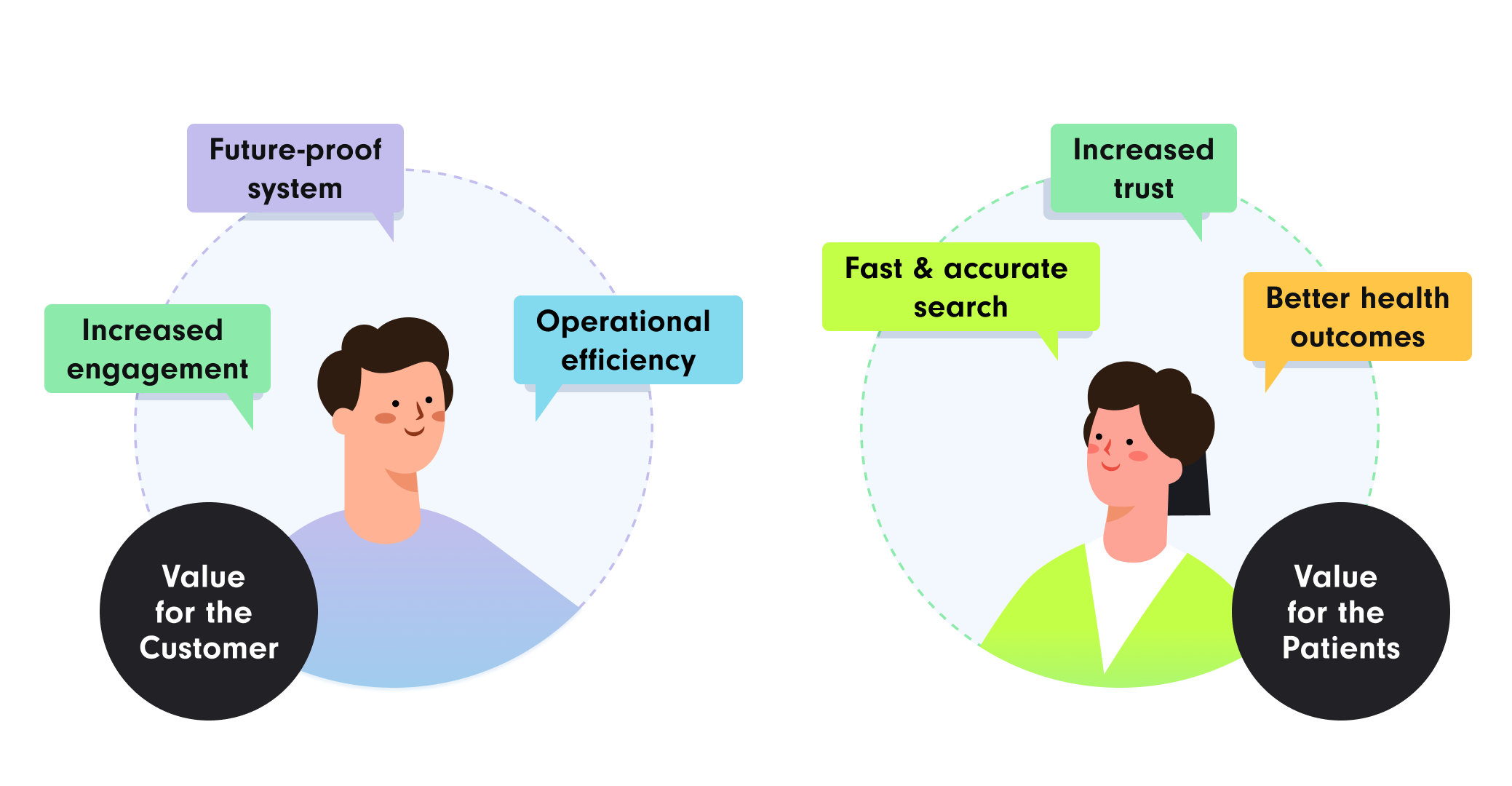How SUNZINET improved patient portal search accuracy and scalability with AI-driven metadata

How AI Transformed Medical Test Search for 20M Patients
This is a hidden post summary. It displays in the editor only.*
A top medical diagnostics company in Poland faced a major challenge—patients struggled to find relevant lab tests due to rigid search functionality. SUNZINET helped solve this by enhancing ElasticSearch with AI-driven metadata, making searches more intuitive and scalable. The result?
- Smarter search accuracy for 2,500+ lab tests
- A future-proof search solution that scales with the platform
Read the full case study & see how AI can optimize search functionality!
The Challenge
Bridging the gap between medical jargon and patient searches
Our client is one of the biggest medical diagnostics companies in Poland, carrying out 140+ million tests each year. With a calatogue of 2,500+ laboratory tests, their online platform serves as a key information hub for 20 million patients. Navigating such a complex offering, however, presented a significant challenge, in spite of the existing search functionality. The ElasticSearch-based engine relied solely on formal medical terminology, which often led to confusion for users searching with more common, layman’s terms. This mismatch resulted in:
- Ineffective Search: The results were presented in a random order and did not suggest additional answers that might be related to a person’s query e.g. by type of medical condition.
- "No Results Found" Errors: Users encountered these errors even when relevant tests existed – unless one used the exact scientific wording.
- User Frustration: This led to higher abandonment rates, impacting engagement and test bookings.
-
KPIs
Improving metadata for 2500+ lab tests
-
Project Timeline
June 2024

The Goal of the Project
Make medical test searches more intuitive for patients
The main objective of this project was to enhance the search functionality of our client’s online platform, ensuring that patients could easily find relevant lab tests. In order to create a more intuitive, user-friendly search experience, we focused on 3 main objectives:
- Enhancing Accuracy: Make the search engine smarter, allowing it to better understand patient intent even for complex or imprecise searches.
- Improving Relevance: Improve search ranking algorithms to display the most relevant and popular results first.
- Ensuring Scalability: Design a solution that would scale with the platform as it grows, making it easy to integrate new medical tests and adapt to future technologies without disrupting the user experience.
Strategy: Defining the path to an improved search experience
-

The strategy began with a shift in focus from merely optimizing the search engine itself (ElasticSearch) to enhancing the quality and completeness of the data being processed. This meant improving metadata and refining the structure of test descriptions to ensure more relevant and accurate search results for users.
-

The next step involved enriching the existing test data by adding essential metadata like synonyms, related diseases, and relevant tags. Using ‘chain of thought’ prompting, we generated unique and accurate synonyms for lab tests. The AI output was then evaluated by the customer’s medical board to ensure formal validity.
-

To improve search accuracy for longer and more complex queries, we suggested a hybrid approach combining traditional keyword-based search (BM25) with semantic search technology. This would allow for better understanding of user intent and more relevant results, especially for multi-word or ambiguous search terms.



Solution
AI-enhanced ElasticSearch
Optimizing the search performance did not stop at creating an AI-enriched vector database. SUNZINET provided a detailed report outlining further strategies for our client to implement. In order to fully leverage ElasticSearch capabilities and ensure sustainable improvements, we recommended the following actions:
![]() Limit Fixed Search Rules
Limit Fixed Search Rules
Use only for specific tests or promotions to avoid scalability issues.
![]() Optimize Data Structure
Optimize Data Structure
Avoid indexing descriptive text in Elasticsearch; focus on structured, standardized data.
![]() Create a Test Set
Create a Test Set
Develop a set of frequently searched terms to monitor and ensure search quality over time.
![]() Conduct A/B Testing
Conduct A/B Testing
Test new features (e.g., tags, metadata) to assess user value before full implementation.

Results & Impact
Scalability through data quality
Our approach went beyond fixing short-term search inefficiencies—it laid the groundwork for long-term scalability. By prioritizing structured metadata and improving data consistency, our client can now continuously refine its search functionality as new tests are added and patient needs evolve.
With AI-driven metadata enhancements and optimized data structures, the search engine is now positioned for lasting performance improvements, reducing frustration for users while increasing engagement and test bookings. By focusing on data quality over temporary fixes, the company has a future-proof solution that ensures both operational efficiency and an improved patient experience.

